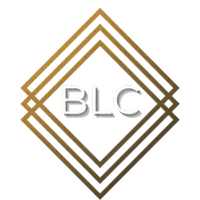Blog > What Is an Escrow Deposit in Florida Real Estate? A Buyer’s Guide to Good Faith Money
What Is an Escrow Deposit in Florida Real Estate? A Buyer’s Guide to Good Faith Money
by
What Is an Escrow Deposit in Florida Real Estate? A Buyer’s Guide to Good Faith Money
Let’s say you find the home you love, you’re ready to make an offer, and then your agent (that’s me!) says:
“You’ll also need to put down an escrow deposit.”
Wait—what? What is that, and where is this money going?
Let’s walk through the basics of the escrow deposit (sometimes called a good faith deposit or earnest money) and why it’s a crucial piece of the homebuying puzzle here in Florida.

💰 What Is an Escrow Deposit?
In simple terms, it’s a deposit you put down after your offer is accepted to show the seller that you’re serious.
It’s not an extra fee, and it’s not money you lose—it goes toward your closing costs or down payment when you buy the home.
It’s held by a neutral third party (like a title company or closing attorney) in an escrow account until closing day.
📅 When Is It Due?
Typically, your escrow deposit is due within 3 days of your contract being signed (check the exact timeline in your offer). So it’s something you’ll want to be ready for the minute your offer is accepted.
💸 How Much Should You Expect?
In Florida, the typical range is:
-
$1,000–$5,000 on lower-priced homes
-
1–3% of the purchase price on more competitive or higher-priced homes
But here’s the thing: the amount is negotiable. Some buyers offer more to strengthen their offer in a hot market. Others offer less if the seller is flexible or if they’re paying cash.
I’ll always guide you on what makes sense for your situation and what will help your offer stand out without overcommitting.
🤔 Is It Refundable?
Great question—and the answer is: yes, sometimes.
Your escrow deposit is typically protected by contingencies written into the contract. That means you could get your money back if:
-
Your financing falls through during the financing contingency
-
The home doesn’t appraise and you choose not to move forward
-
You cancel during the inspection period for any reason
-
The seller fails to meet certain contract terms
BUT—if you back out after all your contingencies have expired, you could lose that deposit. That’s why I help keep your timeline tight and your decisions clear.
🔐 Where Does the Money Go?
Your money is held securely in an escrow account, not in anyone’s personal hands. It doesn’t go to the seller until closing, and it’s fully traceable.
When you close, that deposit is applied toward your costs—so think of it more like a credit than an extra charge.
🤝 Why It Matters to Sellers
In competitive markets (like parts of Orlando right now), a strong escrow deposit can make your offer more appealing. It shows that you’re financially stable and ready to move forward.
But don’t worry—we’ll balance “strong” with “safe.” I’m not about having you overextend yourself just to win.
🧠 Final Thoughts
Your escrow deposit is like your seatbelt in the transaction. It keeps things secure, helps you stay in your lane, and shows you’re committed to seeing things through.
It’s also one of those things buyers often aren’t prepared for—and I’m here to change that.
🎯 Thinking about making a move soon? Let’s chat about what you’d need to have ready to submit a strong offer. I’ll walk you through the whole contract, line by line, so there are zero surprises and full confidence from day one.

